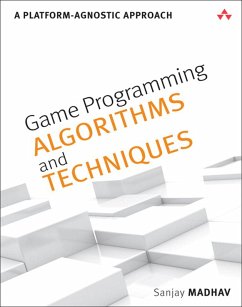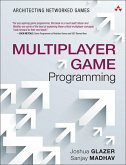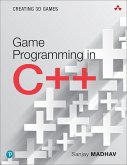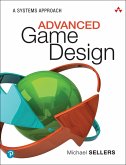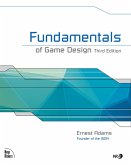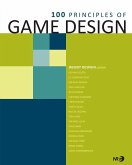Sanjay Madhav takes a unique platform- and framework-agnostic approach that will help develop virtually any game, in any genre, with any language or framework. He presents the fundamental techniques for working with 2D and 3D graphics, physics, artificial intelligence, cameras, and much more.
Each concept is illuminated with pseudocode that will be intuitive to any C#, Java, or C++ programmer, and has been refined and proven in Madhav's game programming courses at the University of Southern California. Review questions after each chapter help solidify the most important concepts before moving on.
Madhav concludes with a detailed analysis of two complete games: a 2D iOS side-scroller (written in Objective-Cusing cocos2d) and a 3D PC/Mac/Linux tower defense game (written in C# using XNA/ MonoGame). These games illustrate many of the algorithms and techniques covered in the earlier chapters, and the full source code is available at gamealgorithms.net.
Coverage includes
- Game time management, speed control, and ensuring consistency on diverse hardware
- Essential 2D graphics techniques for modern mobile gaming
- Vectors, matrices, and linear algebra for 3D games
- 3D graphics including coordinate spaces, lighting and shading, z-buffering, and quaternions
- Handling today's wide array of digital and analog inputs
- Sound systems including sound events, 3D audio, and digital signal processing
- Fundamentals of game physics, including collision detection and numeric integration
- Cameras: first-person, follow, spline, and more
- Artificial intelligence: pathfinding, state-based behaviors, and strategy/planning
- User interfaces including menu systems and heads-up displays
- Scripting and text-based data files: when, how, and where to use them
- Basics of networked games including protocols and network topology
Dieser Download kann aus rechtlichen Gründen nur mit Rechnungsadresse in A, B, BG, CY, CZ, D, DK, EW, E, FIN, F, GR, HR, H, IRL, I, LT, L, LR, M, NL, PL, P, R, S, SLO, SK ausgeliefert werden.

